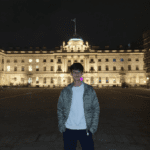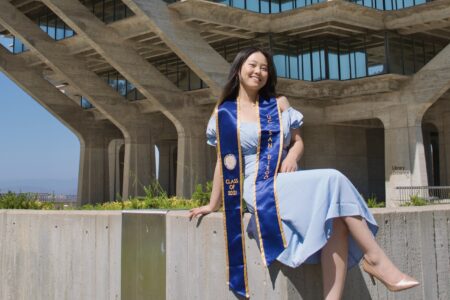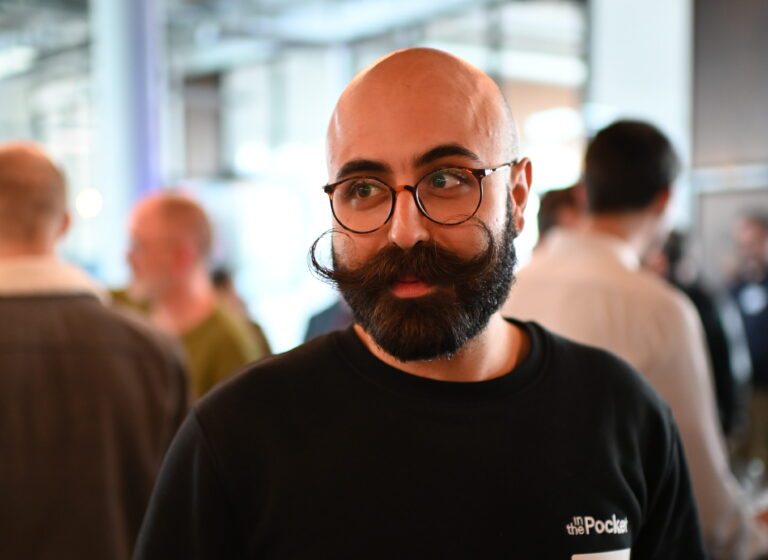
What do you want to do when you grow up?
That’s a question that we’ve all been asked by too many aunties and uncles. We’re told to strive to become the next Steve Jobs or Mark Zuckerberg or that distant cousin who went to Harvard, interned at Microsoft, and now works at Google.
Get that medical and engineering degree, they say, so you can make your family proud. Forget about the arts and business education, they warned. Those are “for dreamers.”
The younger Pooria Nobahari followed their conventional wisdom.
As his father and grandfather were in investment and real estate, Nobahari was inspired to pursue civil engineering. He obtained his Bachelor of Engineering from Shahrood University of Technology, graduating in 2017 – but quickly realised something was missing.
“It was all about structural design, which was initially interesting, but there was an element of creativity that was missing,” he explained. “I realised that I wanted to be part of more strategic decision-making, and that I wanted to do business management.”
Growing up, Nobahari grew up reading biographies of innovators like Edison and Tesla. He was drawn to not just what they built, but how they built technologies that changed the world.
Nobahari wanted to have the same impact on the world.
Inspired by Jeff Bezos and Elon Musk, and swayed by what the world beyond his home country Iran can offer, he sought to get a master’s degree abroad.
Preferably one from a business school well-ranked by The Financial Times and well-suited to his goals.
That’s when one option stood out to him: Vlerick Business School.
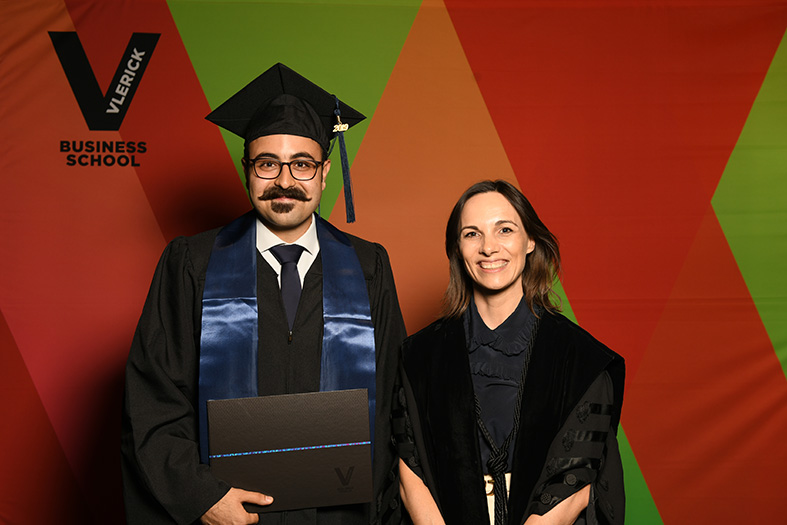
While at Vlerick, Nobahari also co-founded the Presentation/Debate club. Source: Pooria Nobahari
From Iran to Brussels, Japan, China, and Hong Kong
Nobahari chose Vlerick for two reasons. The first was that Brussels seemed like an exciting place to live and study in.
“Brussels itself is extremely interesting, because it’s a very international city,” he explained. “You’ll have people from all around the world living, studying and working here, which gives you an opportunity to meet new folks, build relationships, and have new experiences. I think Brussels is a good choice for any international student.”
The second reason was that the business education Vlerick offered was highly hands-on.
“It was extremely exciting – we didn’t have exams for most of our courses,” he said. “We always had to work in teams on real-life challenges. Companies would come to us presenting these problems, and we’ll work on it together to solve it. You can really see all the dynamics that’s going on with the customers, market, company, competitors, and trends.”
Another way Nobahari described the programme was that it was “extremely dynamic.” He was working with people from different backgrounds and countries to juggle various courses and projects at the same time.
At Vlerick, no semesters were set in stone – students could begin courses whenever they liked. That also meant that Nobahari had to get used to doing group projects in one course, studying for another, while preparing for an exam in a third.
“I feel like they intentionally made it that way,” he said. “Like that, it really prepares us for how real life is like. We’re always fighting against time, so we had to learn to prioritise and be smart with our decisions.”
But the one aspect Nobahari loved most about his business education was the trips.
Visits to China, Hong Kong and Japan took them to universities and companies. He learned about cultures, hidden opportunities, and the secret sauce of “how business is done.”
“Most importantly, we learned how people think differently,” he says. “It was a fantastic experience.”

Nobahari even considered settling down in Hong Kong during his travels with Vlerick, but decided to return to Belgium. Source: Pooria Nobahari
In Japan, Nobahari visited Tokyo and Kyoto. Though only 400km apart, both cities had stark differences in ideas, customs, and social behaviour.
In Tokyo, he toured Starbucks and Tokyo Business School, where local professors conducted business presentations. He learned more about Japan’s high-quality manufacturing, how their marketing lagged behind American competitors, and how they mitigated this by hiring people from the US and Europe to give their products global appeal.
In Kyoto, he saw beautiful temples and nature before heading to China and Hong Kong.
Again, he saw how unalike everything was.
“We went to Beijing University, Shanghai University, and then to Hong Kong University to learn more about the local business culture and practices,” he said. “If I were to make a generalisation, everyone has a very entrepreneurial mindset – they’re extremely ambitious, and risk-takers at heart!”
It dawned on him that without a business education, especially at Vlerick, he might never have had the chance to learn about other countries, their cultures, and now business practices.
If these trips taught Nobahari one thing, it’s how important the positioning of a product or service is.
“I also think that’s one of the reasons why many startups fail,” he confessed. “You have a great product, or great technology – but then you still need to position this product in the market and build a brand around it. You need to tell people that they have a need that they didn’t even know about before.”
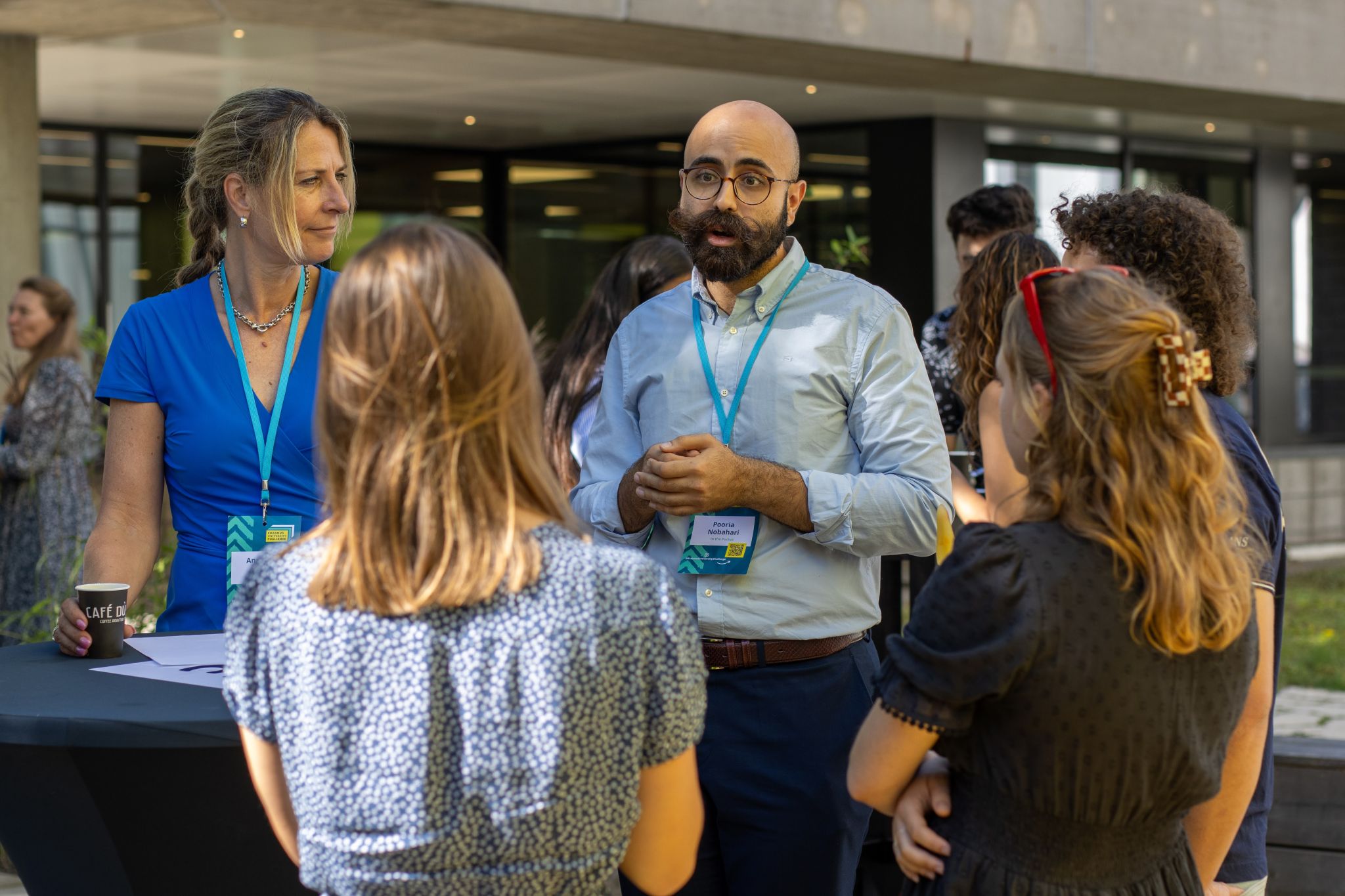
Vlerick’s business education has shown Nobahari a whole new world. Source: Pooria Nobahari
‘Shooting for the stars’ with a business education
Full of new knowledge and connections, Nobahari couldn’t wait to put his business education to good use. It was time to create that impact he’d dreamed of as a child.
Vlerick helped by providing plenty of resources, including tailored support for international students like him.
“It’s actually thanks to Vlerick that I found a job three days before graduation,” he said. “Throughout the year, we have career coaching and several career events where companies would come to visit and speak to us.”
Nobahari loved Belgium so much that he decided to stay on and work there, a common outcome for Vlerick graduates.
For three years, he worked with THEO Technologies in Belgium, becoming their Partnerships Manager. He managed over 50 global partner networks, led joint sales activities, built go-to-market strategies, scouted new partners, and represented the company at major industry events, while supporting strategic projects for company growth.
“I think the travels abroad I had with Vlerick were very helpful for my time here,” he added.
In 2023, he joined In The Pocket, a European digital product studio as a business developer, working on go-to-market strategies, lead generation activities, and leading teams to offer AI, digital strategy, UX design, and research services to enterprises in Belgium and the Netherlands.
“I was also working with various, dynamic environments, catering to different client challenges and tailoring solutions for them,” he explained.
“I had to constantly manage all kinds of collaborations, between our company experts, clients and stakeholders, and look out for opportunities to grow. It was a very interesting experience.”
Today, he’s working with Faktion, a Belgium company that provides AI-applied solutions for businesses across several industries. His previous experiences have earned him a shiny new role – he’s now their marketing manager.
Nobahari loves the role, and the creativity it brings.
“One thing I have from my Iranian roots is that I’m really not afraid of thinking out of the box and coming up with completely new ideas,” Nobahari said.
“Creativity, risk-taking, ambition – we’re always shooting for the stars. And now, with Faktion, I get to work with AI, which gives me a chance to shape how it’s going to help change the world.”






